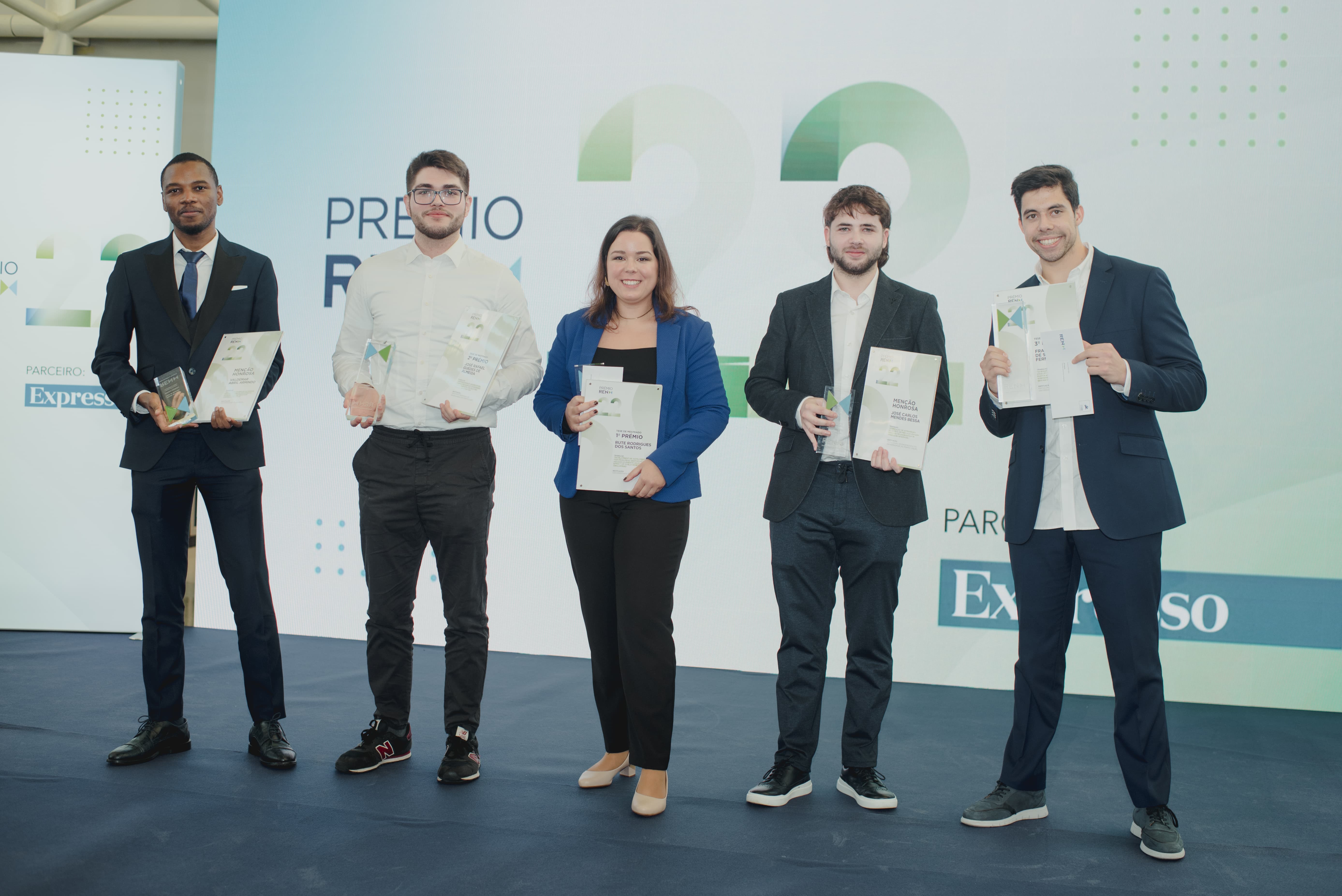Master’s thesis of student from University of Coimbra wins REN Award
The winner of the REN Award is Rute Rodrigues dos Santos, from University of Coimbra, for her master's thesis 'Development of instrumentation for measuring Geomagnetically Induced Currents (GICs) and effect of shield wires on GIC simulations'. In the award ceremony, which took place at Impresa's headquarters, in Paço de Arcos, the Medals of Scientific Merit were also awarded to young people from Portuguese-speaking African countries who have carried out projects in the area of energy transition.
The master's thesis of Rute Rodrigues dos Santos is based on the simulation of the effect of shield wires in GIC models and on the assembly and placement of a device to measure these currents in a power grid substation. The system was installed in REN's Paraimo Substation and is in operation and collecting data. It has already recorded a few events of the expectable daytime modulation due to temperature variations.
REN Award's judging panel bestowed second place to José Rafael Guedes de Almeida, a student of Instituto Superior de Engenharia do Porto (Higher Institute of Engineering of Porto), for his thesis 'Optimisation of Aggregators Energy Resources considering Local Markets and Electric Vehicle Penetration'. The project proposes the development of a model for energy resource scheduling of the dedicated resources for the following day, seeking to minimise costs or maximise profit.
In third place was Francisco de Sousa Fernandes from the Faculdade de Engenharia da Universidade do Porto (Faculty of Engineering of University of Porto). His thesis 'Assessment of frequency stability behaviour regarding inertia reduction due to high renewable integration in the Iberian system' focuses on the impact of reducing synchronous inertia in the frequency stability of the Iberian system for different critical operation scenarios.
The Judging Panel also awarded two special mentions, one to José Carlos Mendes Bessa from the Faculty of Engineering of University of Porto (Optimisation of Market Supply Strategies Using Probabilistic Prediction of Renewable Generation) and one to Valdemar Abril Armindo, from the University of Coimbra (Diagnostic and Analysis of Failures in the Stator Windings of a Six-Phase PMSM with Predictive Control).
2nd Edition of the Medals of Scientific Merit
In 2021, the REN Award elected to broaden the scope of its recognitions, by awarding medals of scientific merit to young people from Portuguese-speaking African countries. The selected students have undertaken research projects as part of their advanced training (master or doctorate) in areas of energy transition, in general, and in Africa.
In the category of Women Researchers, the Angolan Ariel Neves, with thesis 'Optimisation of an Anaerobic Digestion Plant - Project in Renewable Engineering' was the winner. In the Students category, Valdemar Abril Armindo won with thesis 'Diagnostic and Analysis of Failures in the Stator Windings of a Six-Phase PMSM with Predictive Control, for application in Electric Vehicles and Wind-Powered Generators'.
About REN Award
The REN Award was created in 1995 and is a prize for the best master's theses in the field of energy written by students of Engineering, Economics, Mathematics, Physics, Chemistry, Information Systems, and Computer Science. In 2019, the REN Award honoured doctoral theses for the first time, this award being granted only every two years.
Winning theses in each of the 27 editions of the REN Award have been following the defining changes and developments that have shaped the energy sector, anticipating challenges, identifying problems, and putting forward innovative solutions, thus contributing to the development of the energy sector in Portugal and strengthening the interaction between REN and academia.
The winner of the Best Thesis Award will receive a cash prize of €25,000. Second place receives a prize of €15,000 and third place receives €10,000. Each honourable mention will receive a prize of €2,500. The winner of the Best Doctoral Thesis receives €30,000. The winner of the Medal of Merit is awarded €5,000, while the runner-up receives €2,500.
;
